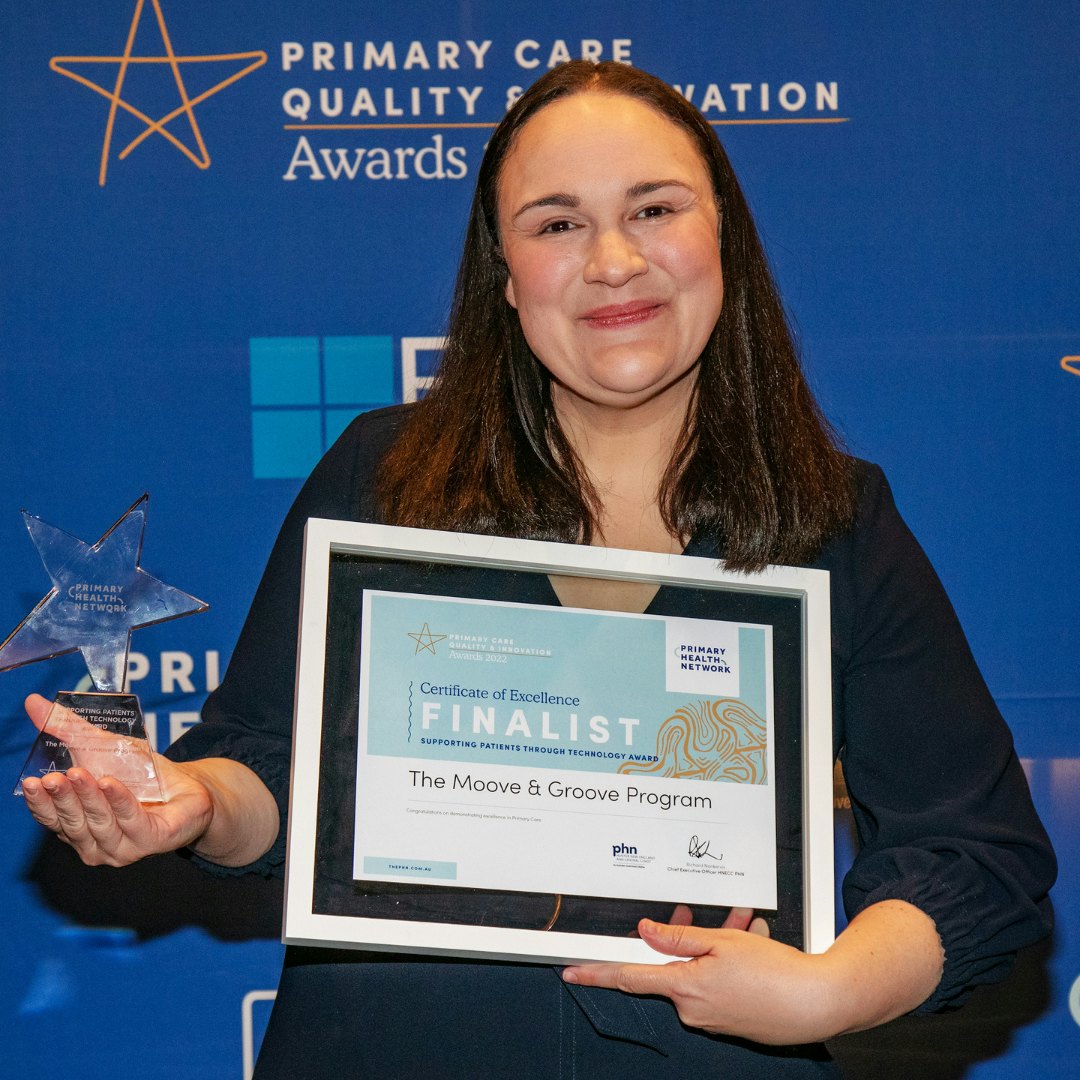
June 27 2022
Innovative approaches to technology-based healthcare in the spotlight
Two unique programs have been awarded joint winners of the Supporting Patients Through Technology Award by the PHN.
13
December 2023 Dec 2023

After identifying a lack of social connectedness in the elderly following COVID-19, the Hunter New England and Central Coast Primary Health Network (HNECC PHN) commissioned Live Life Get Active to pilot the Active Ageing Program in five retirement villages across the region. Villages in Armidale, Central Coast and Newcastle participated in the seven-week program and a following 28-day challenge, to embed the behavioural changes learnt throughout the program.
The program, which includes components such as physical fitness, mental wellbeing, nutrition, and social health, had 128 participants, aged between 65-100 (average age of 81) with a consistent attendance rate of 98 per cent.
HNECC PHN Chief Executive Officer, Richard Nankervis said, “One of the PHN’s most urgent priorities is to increase services to older Australians to delay their entry into Residential Aged Care Facilities (RACFs), reduce avoidable hospitalisations and improve equitable access to the services that older people require.
“Over the past year the PHN has worked towards achieving these goals through pilot programs and community education including the Active Ageing Program. The impressive results will help inform further programs and services for our older community members.”
Amanda King, CEO at Live Life Get Active says the Active Ageing Program was developed following a COVID-19 social research study, called The Life Report, which revealed the feelings of retirees around the country. The study found that those under the age of 60 feared how the country was ever going to mend, they worried about the future and about their children, however they wanted to push through and recover.
In comparison, the results showed that those over 60 had essentially ‘stopped living’. They were not ready to socialise, they feared contact, and they felt abandoned. Thirty-four per cent had anxiety and 33 per cent had no weekly contact with others.
“These results are why we decided to create a program of support but also about re-connection and positive, active ageing. After a year of research, we had developed a program to provide positive life changing outcomes for retirees and the elderly,” said King.
“It was encouraging to see the participants willingness to learn and take on board new ideas. Every person we engaged with was willing to try new things. When they saw how much the changes impacted the quality of their lives, that is when we saw significant behavioural change. So many of them simply said that they had not received attention for a long time, and it was good to be spoken to with care and understanding of their needs and fears.
“I am so grateful to have the amazing team that delivered the program with such passion and for the belief and support of the PHN. When you see an 80-year-old change from being frail and uncertain to being outgoing, active, and involved in community life, it’s so rewarding. When you hear that someone has gone out of their way to make new friends or taken up a new hobby to boost their cognitive and mental health, you can’t help but smile.
Program results
“The outcomes of the program have taught us that if we give the older members of our community the opportunity to learn skills to help them proactively improve their physical, mental, nutritional, and social health, we’ll have a much less dependent generation. We will have a generation that is still willing and able to contribute to communities in many wonderful ways.”
Over the past ten years Live Life Get Active have worked with over 110,000 people nationally who have sought to change their lives; to be fitter, healthier and, importantly, a whole lot happier. Their programs have been successful in promoting better health and reducing risk of chronic diseases such as obesity, diabetes, and poor mental health.
Subscribe to our mailing list to get all the latest news updates delivered to your inbox.